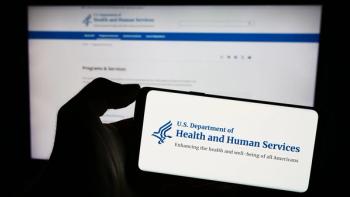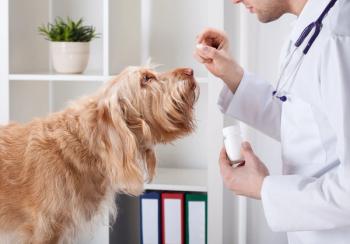
Senate passes workforce expansion act
Washington - Senate lawmakers cleared the way for a modified version of the Veterinary Public Health Workforce Expansion Act, passing it as an amendment to the Higher Education Authorization Bill.
WASHINGTON — Senate lawmakers cleared the way for a modified version of the Veterinary Public Health Workforce Expansion Act, passing it as an amendment to the Higher Education Authorization Bill.
The 95-0 vote, held July 23, authorized language to create a 10-year competitive grants program designed to alleviate public health workforce shortages of DVMs by increase educational capacity within the nation's veterinary medical institutions. Championed by veterinarian Sen. Wayne Allard, the measure calls for an undetermined amount of money to increase veterinary colleges' research, diagnostic and training capacity. The ultimate goal: to boost the number of veterinarians skilled and working in public-health practice.
The new version, which now stipulates "minor renovations and improvements," is a far cry from the $1.5 billion originally requested when the Association of American Veterinary Medical Colleges (AAVMC) authored the bill. Proponents still must lobby Congress to appropriate funds to fuel the measure.
But that's minor in the grand scheme, officials say. What's important is the Senate, widely considered a tougher obstacle to bills than the House, put its stamp of approval on the idea that veterinary colleges need the government's financial assistance to train more DVMs to serve the nation's public health needs.
"I have been told by many people that this would never happen, that it would take 10 years," AAVMC lobbyist Brian Smith says. "But this is just one hurdle that we've crossed. We have a lot of others to get over before we actually see more feet on the street."
House side
That means working hard to get an identical measure passed in Congress' lower chamber. At presstime, the House of Representative's version of the Higher Education Authorization Bill was being drafted in the Education and Labor Committee. That's where AAVMC officials plan work toward getting more veterinary-friendly concessions passed.
Dr. Andrew Maccabe
"There's still plenty of time for us to lobby the House to put in a version more similar to the standalone bill," says Dr. Andrew Maccabe, AAVMC associate executive director.
Smith adds, "Whether or not it's in the House version, we'll still have a seat at the table when it goes to conference committee because it's in the Senate's bill."
Pulling out all stops
That presence might prove greater now that the profession's honed its lobbying techniques. As word regarding the Senate's consideration spread, the American Veterinary Medical Association urged members to lobby their senators. Capitol Hill phones lines were tied up as the vote neared, a phenomenon Smith links to DVM efforts.
"I'd like to think that it was because we had so many veterinarians blasting the Hill with phone calls," he says. "If so, it worked. That's called modern lobbying. It's how things happen around here."
Newsletter
From exam room tips to practice management insights, get trusted veterinary news delivered straight to your inbox—subscribe to dvm360.




